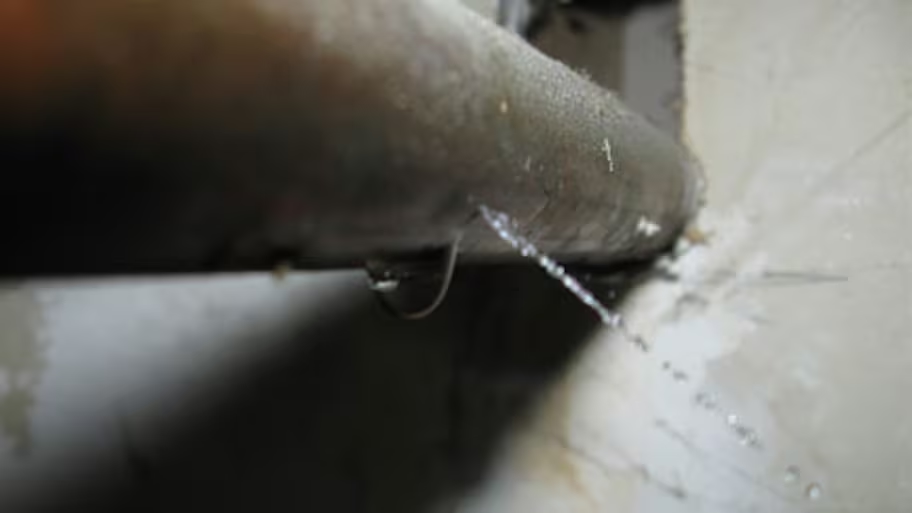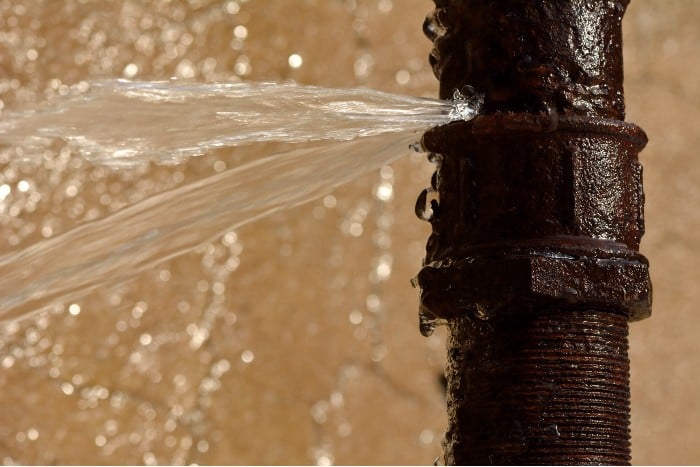Understanding What Leads To Water Seepage Occur So Often in Your Home
Understanding What Leads To Water Seepage Occur So Often in Your Home
Blog Article
Presented here down the page yow will discover a good deal of incredibly good insight relating to Most Common Causes of Leaky Pipes.

Leakages not only cause waste of water but can also cause unneeded damages to your house and promote undesirable natural development. Water leakages could go unnoticed considering that many of the pipework in our house is hidden. By looking as well as recognizing for day-to-day circumstances that create leakages, you can safeguard your home from future leaks and unneeded damages. Today, we will certainly consider 6 leak triggers that may be triggering your pipes to leak.
Instantaneous temperature modifications.
Severe temperature adjustments in our pipelines can create them to broaden and contract suddenly. This growth and contraction may cause fractures in the pipes, specifically if the temperature level are below freezing.
Rusty water supply
As time goes by, your plumbing system ages and deterioration such as corrosion might begin gnawing the pipelines. This may be the cause of staining or warping on your pipes. This calls for an inspection with your plumber quickly. If our plumbing system is old, take into consideration changing the pipelines since they are at a greater threat of deterioration than the more recent designs.
Faulty Pipe Joints
Pipe joints can degrade over time, resulting in water leakages. If you have noisy pipelines that make ticking or banging sounds, especially when the hot water is turned on, your pipe joints are most likely under a lot of stress.
Encroaching origins
Most water leakages start outside the residence rather than inside it. You might notice wet patches or sinkholes in your backyard, as well as that could suggest that tree roots are attacking water lines triggering water to seep out.
Poor Water Connectors
Sometimes, a leakage can be caused by loose hoses as well as pipelines that supply your home appliances. Most of the time, changing is what causes the loosened water Connections. You may discover when it comes to a cleaning maker, a hose pipe may spring a leak due to shaking throughout the spin cycle. In case of a water links leak, you might notice water running directly from the supply line or pools around your devices.
Clogged Drains
Obstructed drains could be frustrating as well as inconveniencing, however they can in some cases wind up creating an overflow leading to break pipes. Maintain eliminating any materials that might go down your drains pipes that might obstruct them to avoid such aggravations.
All the above are causes of leakages yet not all water leaks result from plumbing leakages; some leakages could come from roofing leakages. All leakages ought to be repaired quickly to avoid water damages.
Leakages not only cause waste of water however can additionally create unnecessary damage to your house and also promote unwanted organic growth. By comprehending and also looking for daily circumstances that trigger leaks, you can secure your house from future leakages and also unnecessary damages. Today, we will certainly look at 6 leakage causes that might be triggering your pipes to leak.
At times, a leak can be created by loosened hoses and pipes that supply your home appliances. In case of a water links leak, you may observe water running directly from the supply line or pools around your appliances.
How To Check For Water Leak In Your Home
How To Check for Leaks
The average household's leaks can account for nearly 10,000 gallons of water wasted every year and ten percent of homes have leaks that waste 90 gallons or more per day. Common types of leaks found in the home are worn toilet flappers, dripping faucets, and other leaking valves. These types of leaks are often easy to fix, requiring only a few tools and hardware that can pay for themselves in water savings. Fixing easily corrected household water leaks can save homeowners about 10 percent on their water bills.
To check for leaks in your home, you first need to determine whether you're wasting water and then identify the source of the leak. Here are some tips for finding leaks:
Take a look at your water usage during a colder month, such as January or February. If a family of four exceeds 12,000 gallons per month, there are serious leaks.
Check your water meter before and after a two-hour period when no water is being used. If the meter changes at all, you probably have a leak.
Identify toilet leaks by placing a drop of food coloring in the toilet tank. If any color shows up in the bowl after 10 minutes, you have a leak. (Be sure to flush immediately after the experiment to avoid staining the tank.)
Examine faucet gaskets and pipe fittings for any water on the outside of the pipe to check for surface leaks.
Undetected water leaks can happen without the home or business owner even realizing. If you suspect a water leak, but not able to find the source. It is time to contact a professional water leak detection service, The Leak Doctor.
How To Find a Water Leak In Your Home
https://www.leakdoctor.com/blog/How-To-Check-For-Water-Leak-In-Your-Home_AE197.html

As a person who reads about How to Find Water Leaks, I assumed sharing that segment was a great idea. For those who appreciated our blog post please do not forget to share it. I love reading our article about How to Find Water Leaks.
Quality assured, call! Report this page